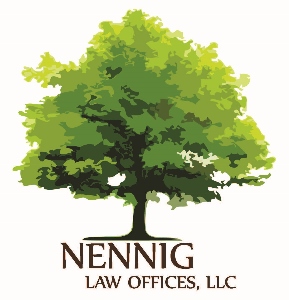When a married couple creates an estate plan using a revocable living trust, they have the option of creating a single joint trust or two separate individual trusts. While the pros and cons of each are beyond the scope of this article, spouses may choose to create separate trusts for a variety...
Category: Trusts

Questions You Should Ask Your Estate Planning Attorney
Creating an estate plan is a personal and often emotional undertaking, making the selection of your estate planning attorney of the utmost importance. Here are some questions you should ask your estate planning attorney to determine if they are the right person for the job.
Why did they pick...

What Is a Nongrantor Trust?
Every trust has at least one grantor, also known as the trustmaker, i.e., the person who creates the trust. So, it can be confusing when terms like grantor trust and nongrantor trust are used. It is helpful to understand that neither of these terms refers to the existence or nonexistence of the...

What To Do if Your Trustee Is Unresponsive
A trustee has a duty under the law to communicate with beneficiaries and keep them reasonably informed as to the progress of the trust administration. Depending on your state’s law, such duty to inform may require the trustee to give beneficiaries a copy of the trust document, provide information regarding the anticipated...

LGBTQ+ Estate Planning to Protect Yourself and Your Loved Ones
Estate planning is for everyone. Regardless of your wealth, age, marital status, gender identity, or sexual orientation, it is crucial to have a plan in place to protect your money, property, and loved ones in the event of an accident, illness, or death.
For LGBTQ+ Americans, estate planning can...

Can a Trust Own My Business after I Die?
In general, the answer to the title question is yes, your trust can own your business after you die. However, there are a number of considerations that may impact the answer to this and the following questions. One consideration is the type of business interest you own. Is your business a limited...

When Rock Legends Pass Away: The Possible Fates of Meat Loaf’s $40 Million Estate
Meat Loaf, whose real name was Michael Lee Aday, passed away earlier this year at the age of seventy-four. The singer behind 1977’s Bat Out of Hell—one of the best-selling albums of all time—experienced ups and downs befitting his larger-than-life persona. He hit bottom with his 1983 bankruptcy but rode a 1990s career...

No Contribution Is Too Small
Most American strive to earn a decent-sized paycheck to support themselves and their families when they go to work. Stay-at-home parents, however, work to provide valuable nonfinancial contributions to their families everyday. They make sure that the home runs smoothly and that their family members have what they need to be successful...

Silent Trusts: Could I Be the Beneficiary of a Trust and Not Know It?
People who have accumulated a substantial amount of wealth during their lifetime are often reluctant to disclose the full extent of their wealth to their children. Although there may be a number of good reasons for high-net-worth individuals to create a trust with their children as beneficiaries, the phrase “trust fund baby”...
QTIP Trust – Will My Spouse Get What They Need?
What is a QTIP trust?
A qualified terminable interest property (QTIP) trust is an estate planning tool that married couples can use to minimize uncertainty about the future and maximize certain tax advantages. Since no one can predict how much they will own at the time of their death, which spouse will die...
